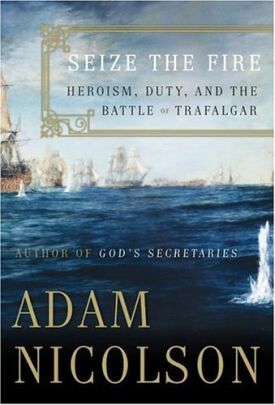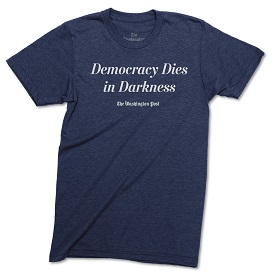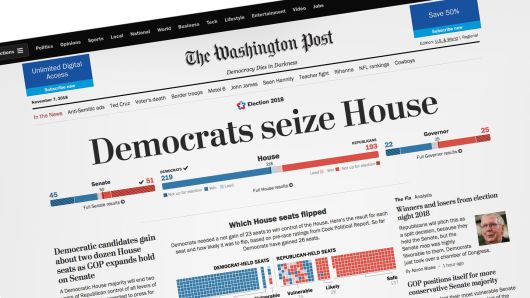George Bush as Strewwelpeter
From the (London) Times Literary SupplementWhen last week the [London] Sunday Times gave to a story from Washington by Tony Allen-Mills the headline: “Pentagon has nuclear hit list of seven nations”, I wonder how many nervous Britons bought the paper to find out if, perhaps, they were on the list? As it turned out, the seven were China, Russia, Iraq, North Korea, Iran, Libya and Syria, and in spite of the provocative designation of these countries as a “hit list”, there can have been few attentive or well-informed readers who were surprised to learn that there were such contingency plans with respect to any of them, since all are past or potential enemies who either have nuclear weapons themselves or are believed by American strategic planners to be in the process of trying to acquire them. The real scandal would have been if, possessing all that megatonnage of destructive power, the Pentagon had no idea against whom it might be used.
But those of a sensitive disposition and inclined to believe what they have lately been reading in the papers about America might almost have supposed that anyone could be targeted by an over-armed and under-scrupulous president given to prating about an “axis of evil”. Last week it was a tariff on steel; next week it might be — who knows? — an ICBM waved in the direction of London or Paris. So far, it appears that the leak of the Pentagon’s list of nuclear targets has terrified those who aren’t on it much more than those who are. Nor are such fears much less among American commentators than among European ones. It was after all the New York Times reporter, John H. Cushman Jr., and not Mr Allen-Mills who helpfully informed his readers of the target list that “Critics are bound to argue that Mr. Bush is making a radical and dangerous shift to a first-strike policy.”
“Critics”, eh? Has Mr Ashcroft heard about these people? Why are they still at large? What is the point of abolishing due process if it is not to scoop up such malcontents as these and ship them off to Camp X-ray as “terrorist” fellow-travellers? For if you believe that the American president is a dangerous madman, plotting a nuclear first-strike against his enemies, real or imagined, why would you not also believe him to be on the point of introducing a police state in the place of his country’s 200-year old Constitution? At any rate, lots of people on both sides of the Atlantic do appear to believe it. And have we not the assurances of such European eminences as Chris Patten, Joschka Fischer, and Hubert Védrine of how dangerous and “simplistic” it is to use the language of “evil”? Have not more than 60 Labour MPs proclaimed their unwillingness to follow such a simpleton to Baghdad? Has not a former American president, Jimmy Carter, himself spoken of his successor’s understanding of the strategic situation as being “simplistic and counterproductive” and claimed that the diplomatic damage would take years to repair?
It seems to me very odd that the complaint of all these critics of President Bush is not, on the whole, that the leaders of Iraq, Iran and North Korea are not evil, or even that they are not an axis, though some have made this point too. That all democracies, and especially the American democracy, on their entry into war customarily demonize their enemies in some such fashion was perhaps an unspoken assumption. Bill Clinton did it to Slobodan Milosevic, Bush’s father to Saddam Hussein, and every president from Truman to Reagan did it to the empire that the latter called “evil”. Most sophisticates understand that the simplisme (to use M. Védrine’s word) of such language is useful in enlisting the support of simple people (unfortunately, a majority) for war, which is often unpleasant and might be especially so against an enemy armed with those euphemistically- named “weapons of mass destruction”.
In fact, at least since the atrocity stories that accompanied the outbreak of the First World War, no democratic nation has attempted to fight a sustained war of the kind proposed against terrorist organizations by President Bush without some resort to the language of evil. Sometimes it is even true. Recently, John Horne and Alan Kramer have argued that it was even true, at least with respect to the atrocity stories, in the First World War in their German Atrocities in 1914: A History of Denial (Yale University Press, 2001). The language of national honour having been rendered obsolete in the 20th century, how could it be otherwise? Yet it is a war of national honour that Bush, in effect, proposes to fight. And must fight. For so grievous a blow as that struck against the United States on September 11, if unanswered by force — and such force as to make American military superiority overwhelmingly apparent — could only invite actual as well as potential enemies to strike again, and harder. How otherwise than as “evil” can he characterize such a likelihood if he is to summon up the necessary determination of the American people to forestall it?
The anxieties of the Europeans over Bush’s words have been awakened, one surmises, because they are afraid that the man who once said that Jesus Christ was the political philosopher who had had the most influence on him was himself simple enough to believe them, or believe them too sincerely and fervently. Some among the American élite may have the same fear, but mostly they are upset because the Europeans are upset. The language of axes and evil seemed an infallible sign that President Bush intends to “go it alone”, as he was thought to have done in the first eight months of his term over the Kyoto treaty and missile defence. Then, too, the merits neither of the treaty nor of missile defense experiments were of much interest compared to the shock of this “going it alone”.
In fact, Joseph Nye, dean of the Kennedy School of Government at Harvard and a former Clinton administration official, has just published The Paradox of American Power: Why the World’s Only Superpower Can’t Go It Alone (Oxford, 222 pp., $26), largely written before Bush’s brief foray into multilateralism. Nye recommends to the new administration the example of Britain, which he says was able to extend its influence well beyond the reach of its declining imperial power with the help of international institutions it helped to set up, such as the UN and the World Bank. Meanwhile, at the University of Chicago, the Bulletin of Atomic Scientists moved their famous “Doomsday Clock” two minutes closer to midnight because, said the Washington Post, of “growing concern about the security of stockpiled nuclear weapons around the country, the rising disparity between rich and poor and the increasing willingness of the United States under President Bush to go it alone.”
One can quite understand, of course, why foreigners might be wary, even frightened and angry about America’s waging, or threatening to wage, war without their acquiescence, even if the war is not on them. But why should so many among the more educated classes of American society be taking the foreigners’ line? Please! they seem to be saying. Don’t let us act alone! There’s no telling what we might do. Such fear of American power among the American intellectual élites who feel themselves excluded from it may owe something to the habits of mind of those, now in their fifties, who were students and potential draftees during the Vietnam War. Then, too, the communist enemy had been “demonized” and — lo! — proved not to be demons but nationalists and patriots.
Yet, as David E. Sanger remarked in the New York Times, “President Bush and his top aides now seem to welcome, even to egg on, the sharp differences prompted by Mr. Bush’s determination to expand his battle against what he calls ‘evil’ regimes.” On several occasions, Sanger wrote, and “in appearances across the country, he has built on the ‘axis of evil’ phraseology . . . knowing full well that each repetition irritates and divides the countries he once hailed as his great coalition partners.” To say nothing of what it does to those who write for the New York Times. True, the president must get some pleasure out of annoying The New York Times and Jimmy Carter, but why go out of his way to antagonize the European allies? And, as if that weren’t enough, reports emerged about the same time of a new Office of Strategic Influence at the Pentagon which would have functioned as a kind of ministry of propaganda — or lying to foreigners.
All the same, I wonder if the administration’s new arrogance towards Europe may not be something other than a product of mere ignorance, philistinism and, er, trust in Jesus. Though Jack Straw said that the “axis of evil” remark was “best understood in the context of the midterm elections in November” it is possible that the elections the president had in mind were the French and German ones in May and September. The German government, in particular, has gone out on a limb and endangered its coalition with the Greens by its support for America. Could it be possible that Bush’s willingness to assume the oafish and “absolutist” role traditionally allotted to America in European thinking was intended as a gift to Herr Fischer’s party? For by providing him with an opportunity to denounce the Americans (without any practical consequences for either the alliance or the war), he had given him a chance to shore up the governing coalition.
To a greater or lesser extent, all the alliance members have paid, and will always have to pay, a political price for being seen as the lapdogs of the Americans. Even in Britian, where the electoral price to Tony Blair might be greater of not being close to America, Blair cannot be unhappy about the signal that Mr. Straw’s scepticism will have sent to readers of the Guardian or the London Review of Books — to say nothing of his own back benches. If Ronald Reagan’s “evil empire” speech in 1983 was meant to frighten the Soviet Union with our actor-president’s irresponsibility, Bush’s “axis of evil” might have been designed to reassure our allies that nothing has changed now that we have a Texas cowboy in the White House. They are still needed to keep us from behaving recklessly. Richard Nixon, who always preferred to do these things through “back channels,” once instructed Henry Kissinger to impress upon the leaders in the Kremlin that he, Nixon, was dangerously unstable, if not mad, and would be capable of doing anything if provoked.
It ought to be reassuring then that Bush, like these predecessors, understands so well what use is to be made of America’s type-casting as the lumbering colossus, stumbling across the world-stage and much in need of the wiser heads and hands of Europe to keep a grip on its tether. President Kennedy, too, must have found it useful when Harold Macmillan professed to have discovered a role for Britain as the Greece to America’s Rome. It is so much better for the allies, who must come along on (or at least stand aside from) even such adventures as Vietnam, when they can see themselves as not mere parasites and hangers-on but usefully employed, as the pilot fish was once supposed to be by the shark. Perhaps this little exercise in letting them think they are so employed and so useful is the first great success of the Office of Strategic Influence, now supposedly dismantled.
Discover more from James Bowman
Subscribe to get the latest posts to your email.







